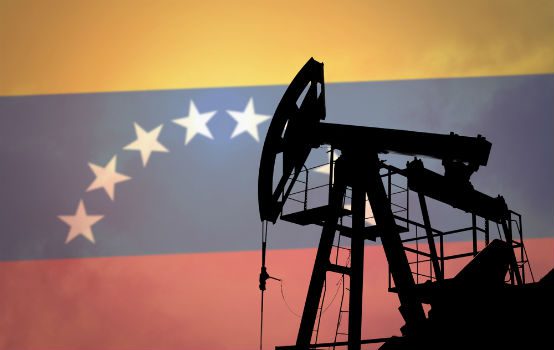Averting Famine in Venezuela Is the Priority

On Saturday, I wrote about how U.S. sanctions are driving Venezuela towards famine, and I cited an article that quoted Francisco Rodriguez about the risk of famine. I had missed that Rodriguez wrote an op-ed a few days ago elaborating on his warning that Venezuelans are facing famine:
Venezuela was already in a deep humanitarian crisis, following years of mismanagement and corruption under Mr. Maduro and his predecessor, Hugo Chávez. Sanctions are now putting the country at risk of a humanitarian catastrophe [bold mine-DL]. In the three months after they were increased in January, Venezuela imported barely a third of what it imported in the same period last year and less than one-tenth of what it bought from the rest of the world back in 2012. Given that most of the population is already living at near-starvation levels and that the country depends on imports to feed itself, further cuts in foreign purchases risk producing the first Latin American famine in over a century.
The risks of famine — and what needs to be done to stop it — are lost in the conversation among Washington policymakers and the Venezuelan opposition. This is the inconvenient truth about Venezuela: Both the policymakers who designed this reckless strategy and the political leaders who supported it could end up sharing responsibility with the criminal and incompetent Maduro regime for the country’s tragedy.
Much like the economic war waged against Yemen, the economic war being waged on Venezuela compounds all of the country’s existing problems and makes life much more difficult for everyone. These are both man-made disasters, and U.S. policy in both countries has contributed to deepening people’s misery and exacerbating the humanitarian crisis. Conditions in Venezuela are bound to deteriorate as time goes on. It is imperative that the U.S. government change course and stop its economic warfare against the people before more harm is done. Unfortunately, interventionists are never all that concerned about the effects of our policies on the civilian population in the targeted country, and it is much easier to impose sanctions than to lift them again later. Venezuela’s crisis has quickly been forgotten once the quick and easy regime change that hawks promised didn’t happen.
Broad sanctions that target whole sectors of a country’s economy inflict pain and hardship on the entire population. These rarely, if ever, achieve the goals of the government that imposes them, but they are “effective” in impoverishing and starving people. Imposing sanctions like this on a country that is already suffering from a man-made humanitarian crisis is indefensible, but there have been remarkably few protests against this inhumane and purely destructive policy when it was applied in Venezuela. In modern famines, people are starved as a result of policy decisions that deprive them of access to food and take away their means of acquiring available food. An economic war that deprives an import-dependent country of the means to purchase those imports does just that.
Rodriguez continues:
Tell the opposition’s intellectual elites that sanctions are exacerbating the country’s crisis and you are likely to be met with silence or be told that this is false, that the country’s economic crisis began long before. This is the logical equivalent of saying that a terminally ill patient cannot be killed.
There is a stark contrast between their claims and the views of regular Venezuelans. A recent survey by the local pollster Datincorp found that 68 percent of Venezuelans believe sanctions have negatively affected their quality of life [bold mine-DL]. How to stop hundreds of thousands of Venezuelans from starving to death this year should be front and center of the international community’s debate on how to help Venezuela.
Regime changers like to talk a lot about their support for the people when it is useful to their argument, but they are frequently indifferent to what happens to ordinary people in the countries they want to “help” when their policies predictably cause increased hardship, poverty, and even death. They are happy to exploit a humanitarian crisis if it advances the cause of regime change, but if their own regime change policy worsens that crisis they ignore what is happening or simply shift the blame for everything to the targeted government.
Rodriguez is absolutely right that averting famine in Venezuela should be the priority now. The first step in averting that famine is acknowledging that sanctions are exacting an unacceptably high toll on the population. The next would be moving to lift all of the sanctions imposed in the last two years. If the administration is unwilling to do that, it should follow Rodriguez’s recommendation to create an oil-for-food program for Venezuela. That can’t and won’t fix most of Venezuela’s problems, but it should stave off catastrophe. The pursuit of regime change is not worth causing a famine that could claim hundreds of thousands of lives, and we should reject a policy of collective punishment no matter what the stated goal may be.
Comments